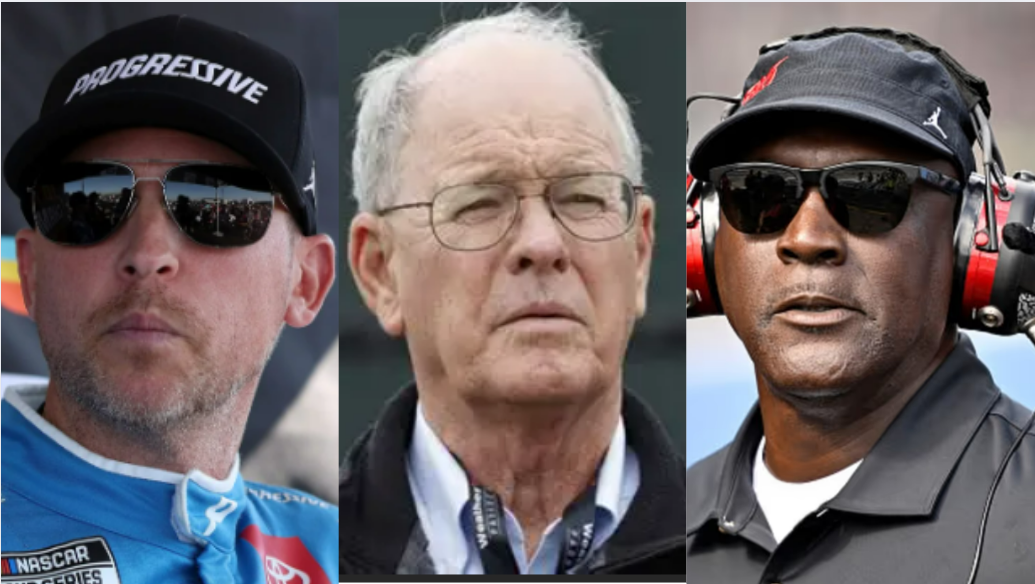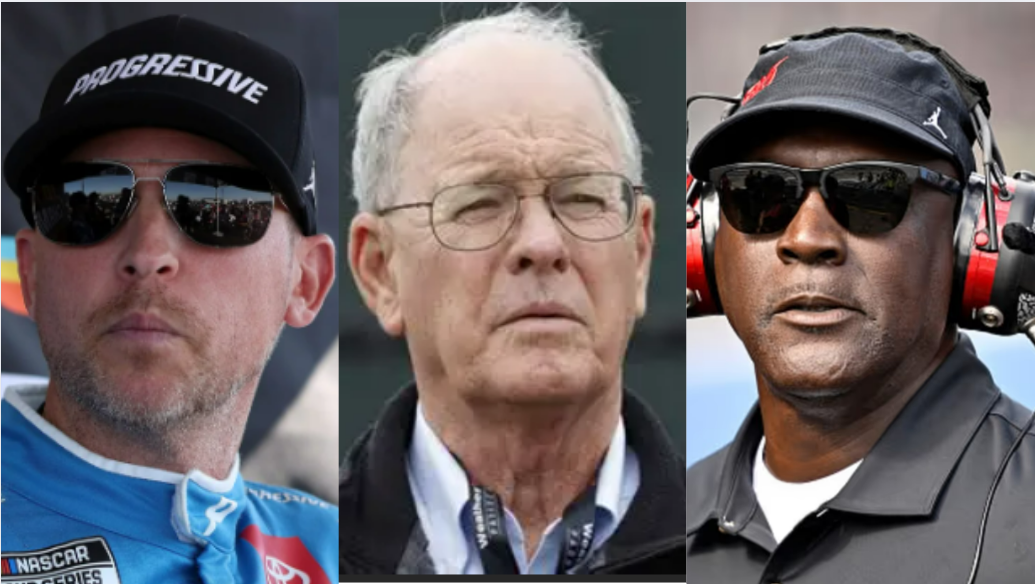



A storm is approaching NASCAR soon! Next Monday, the courtroom in Charlotte, North Carolina, becomes the stage for a high-stakes trial that could reshape how NASCAR does business. With Michael Jordan, NASCAR CEO Jim France, and other top names in American sports set to appear, the 10-day showdown could be pivotal, unless a last-minute Thanksgiving settlement stops it in its tracks.
Watch What’s Trending Now!
Presiding over the case is US District Judge Kenneth D. Bell as the trial dives into antitrust claims filed by 23XI Racing, co-owned by Jordan, Hamlin, and Curtis Polk, and Front Row Motorsports against NASCAR. With the sports finances, team dynamics, and future governance all on the line, fans and insiders are bracing for what could be a game-changing courtroom battle.
The high-stakes NASCAR lawsuit explained and why it matters
The legal battle that erupted last year has been anything but routine. From a flurry of filings to pretrial maneuvers, the case has seen multiple rounds of preliminary injunction motions, including one reviewed by the US Court of Appeals for the Fourth Circuit, centered on whether 23XI Racing and FRM could reap the benefits of charters without taking on their restrictions.
While one injunction motion is common ahead of a trial, three is unusual. Beyond that, the sides have clashed over NASCAR counterclaims accusing the two teams of attempting to create an “illegal cartel,” and they have exploded mediation multiple times, without success.
Both sides have invested heavily in top-tier legal representation. Jeffrey Kessler of Winston & Strawn, who represents the two teams, is renowned for his victory in NCAA v. Alston, where he won a 9-0 Supreme Court decision on antitrust claims for college athletes.
On the other side, Christopher Yates of Latham & Watkins, representing NASCAR, has secured major wins in sports antitrust, including defending US soccer against a $500 million lawsuit filed by the North American Soccer League, ironically led by Kessler. With these heavyweight attorneys on both sides, the courtroom proceedings will only intensify.
At the heart of the dispute lies NASCAR’s alleged anti-competitive practices. 23XI Racing and FRM argue that NASCAR’s charter system, alongside contractual restrictions such as non-compete clauses, unfairly limits team earnings and blocks rivals from entering the Cup Series.
Charters guarantee a starting point on a NASCAR-sanctioned basis but also include clauses that teams claim grant NASCAR excessive control and financial leverage. Both teams declined to sign, asserting that the system undermines the freedom to operate a racing business the way other professional sports allow.
The antitrust lawsuit of 23XI Racing and Front Row Motorsports against NASCAR begins Monday with jury selection. The witness lists for both sides are sealed. The exhibit lists are very lengthy.
If I’m reading correctly, NASCAR lists 961 exhibits, and 23XI/Front Row lists 858.
— Kelly Crandall (@KellyCrandall) November 25, 2025
NASCAR presents a different narrative. The organization insists its dominance stems from merit and smart business decisions, not unfair advantage. NASCAR emphasizes that the teams are free to compete elsewhere; for instance, Team Penske races in both NASCAR and IndyCar, while Hendrick Motorsports owner Rick Hendrick entered a car in last year’s Indy 500 with star driver Kyle Larson.
The governing body is also appointed to the financial upside of charters as evidence against the two teams’ claims. Some charters have skyrocketed in value, roughly tenfold in recent years, with sales like the $45 million transfer involving Rick Ware and Legacy Motor Club used as proof that teams are thriving under the current system.
NASCAR argues that the 23XI/FRM vision would reassemble a franchise-style league akin to the NBA, which could limit flexibility, whereas the existing setup allows for a dynamic marketplace, one that enabled Michael Jordan’s 23XI Racing to enter NASCAR in the early 2020s.
Testimony from veteran team owners such as Hendrick and Joe Gibbs is likely to reinforce NASCAR’s stance, showing that the current charter system has fueled growth and increased financial value for participants. Meanwhile, the two teams are expected to counter that charter constraints restrict economic opportunity, using insights from drivers like Bubba Wallace and Tyler Reddick to illustrate the impact on careers and earnings.
Interestingly, both Penske and Hendrick had been listed by NASCAR as potential trial witnesses, a move that raised alarms for the two teams, who pushed for full exposure of their involvement. In response, Judge Bell recently ordered that both Roger and Hendrick must submit full, in-person pre-trial depositions with no restrictions on questioning. This ruling dead-ends NASCAR’s attempt to limit what can be asked, including sensitive financial business operation details, putting the two legendary owners squarely in the legal crosshairs.
Bell’s decision underscored that neither status nor influence grants special treatment in the case, as he wrote, “will be publicly unfairly contested under the relevant rules… without regard to the notoriety of the companies and individuals involved.”
That means any claims of confidentiality or efforts to limit the scope of their testimony were rejected, setting up a legal climate where Penske, Hendrick, and their operations may be scrutinized under the same spotlight as everyone else in the lawsuit.
The lawsuit also pulled back the curtains on the side of the sport that has rarely been seen by fans, revealing bitter, insult-laden communications between team owners and executives that have taken place in confidence in NASCAR in our workings.
In court-filed documents during a recent hearing, previously private emails and texts were made public. Remarks like NASCAR’s President, Steve O’Donnell, writing, “F— the teams,” and disparaging comments to Richard Childress, calling him a “stupid redneck.” On the other side, co-owner Michael Jordan didn’t hold back either earlier this year, and in one message, he warned that “teams are going to regret not joining us,” directed at those who signed the NASCAR charter system.
Phelps added that Childress needs to be “taken out back and flogged.” The tirade doesn’t stop there; he also labeled him a “dinosaur,” a “total clown,” and an “idiot,” adding that if Childress wasn’t happy with the direction of the sport, he should “sell his charter and get out.”
Childress had questions about the upcoming broadcast rights deal, and the new generation of race cars was really beneficial for veteran team owners, raising serious concerns about costs and returns. Phelps, already under pressure to finalize a deal that would bind teams tightly to the NASCAR charter system, viewed that criticism as betrayal.
The exchanges expose a raw, ruthless clash of pride, power, and fear, a legal and emotional war that threatens not just contracts but every unity and public image of stock car racing.
Could the antitrust lawsuit be put to bed in the December trial?
Exclusivity and non-compete clauses, alleged NASCAR violations, and other standard practices in American professional sports—designed to ensure team and athlete loyalty while strengthening the league’s market position—are expected to bring heavy economic analysis, expert testimony, and deep dives into antitrust law into the courtroom.
These arguments can be complex; past sports and interest trials have failed when jurors struggled to follow expert evidence, as seen in a multi-billion-dollar NFL Sunday Ticket case due to juror confusion. Yet some moments will be easy for jurors to grasp. When Michael Jordan testifies, his name alone will command attention, especially under cross-examination, but he must address potential drawbacks to his desired outcome.
Even after the trial, the story will not end. Losing parties are almost set to appeal to the US Court of Appeals for the Fourth Circuit and potentially to the US Supreme Court, meaning this dispute could stretch for years. No matter the outcome, the repercussions of the 23XI Racing and Front Row Motorsports v. NASCAR trial will ripple across racetracks and boardrooms alike, leaving a lasting mark on the sport of stock car racing.


